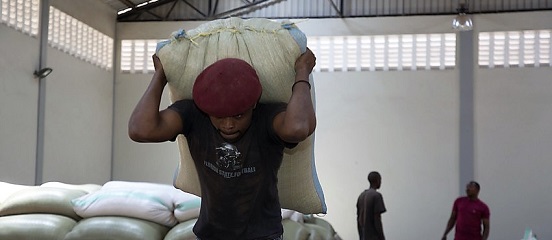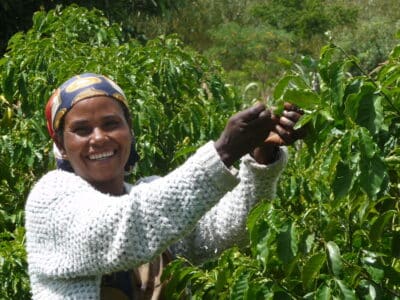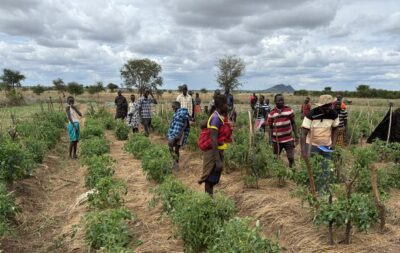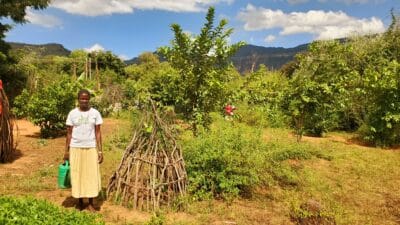News
11 June 2018
Staple crops farmers in Tanzania and Uganda to receive boost

Farm Africa has received a grant from the UK government to extend its FoodTrade project until November 2018. The project will continue to help Ugandan and Tanzanian farmers aggregate rice, maize and beans and sell them collectively to export markets. The eight-month extension will support cooperatives of small-scale farmers in establishing long-term trading relationships with major buyers.
The FoodTrade project helps connect supply with demand by linking farmers, who typically produce a surplus of staple crops, with buyers in neighbouring areas, where there is frequently a deficit of staple crops. Trading within eastern Africa strengthens the region’s food security, and creates opportunities for smallholder farmers to access new markets and increase their incomes.
Between February 2016 and March 2018, the project helped 70,000 bean, maize and rice farmers gain access to lucrative markets by helping them improve the quality of their crops, store them in certified warehouses and market them collectively.
Crops kept in these warehouses can be kept dry and are less susceptible to fungal and pest infections, both common challenges associated with poor storage. This means less food goes to waste, which benefits both the environment and farmers’ profits. Safe in the knowledge that food won’t rot or be eaten by pests, farmers are now able to sell their produce when the price is right for them.
Farm Africa is now working with buyers and village-level collection centres to help farmers deliver the quality assured produce demanded by markets.
“Connecting smallholder farmers to growing and new food markets provides a powerful means to reduce poverty in rural areas and is an important step to towards achieving long-term food security in eastern Africa,” commented Beatrice Muliahela, Farm Africa’s FoodTrade Project Manager.
Frida Elisante, a farmer from northern Tanzania participating in the project, added: “If you sell individually, it is not good. If you sell collectively, you get a bigger market. The price is good because the buyer gets a bigger volume at the same time.”
With funding from the UK government, Farm Africa will continue to work with FoodTrade ESA, Rikolto (formerly known as VECO East Africa) and Rural Development Initiative, and welcomes the addition of Wellspring to the project consortium.





